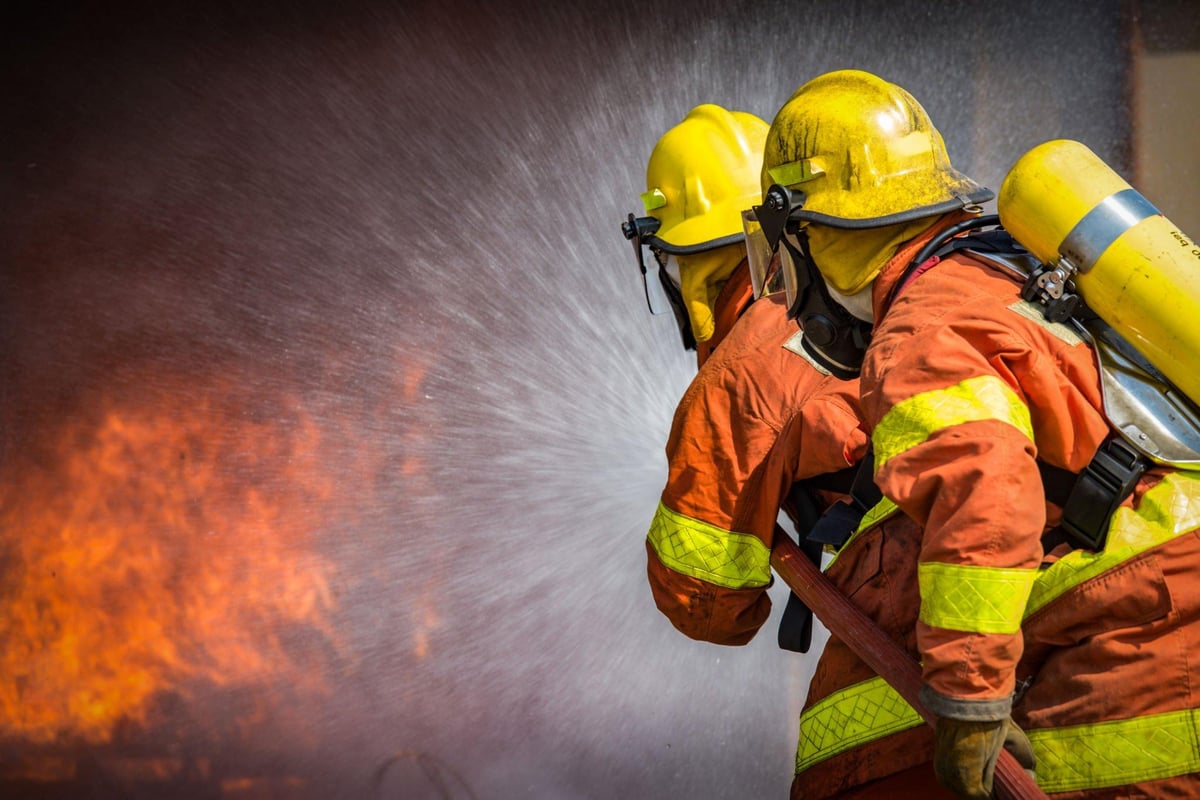Bachelor's Degree in Fire Science: A Complete Guide (2024)

Check out what you need to earn a Bachelor's degree in Fire Science, including what the degree is, the pros and cons, steps to get it, program length, online options, what you'll study, and career possibilities.
Key Points
- A bachelor's degree in Fire Science provides comprehensive training in fire prevention, investigation, and emergency response.
- The program covers topics such as fire behavior, fire protection systems, and incident command.
- Graduates can pursue careers in firefighting, fire inspection, and fire investigation, among others.
- Admission requirements typically include meeting academic standards and passing physical and medical exams.
- Financial aid options, such as scholarships and grants, are available to help cover the cost of tuition and expenses.
- The degree can take four years to complete, and graduates may have the opportunity to continue their education with a master's or doctoral degree.
How Long Does It Take to Get a Bachelor's Degree in Fire Science?
A bachelor's degree in Fire Science typically takes four years to complete. This includes the completion of general education requirements, as well as the core courses in the Fire Science curriculum. Some programs may offer accelerated or part-time options, which can shorten or extend the overall duration of the program.
What to Expect from a Bachelor's Degree in Fire Science
A bachelor's degree in Fire Science is designed to provide students with a comprehensive understanding of fire prevention, investigation, and emergency response. The curriculum covers a wide range of topics, including fire behavior, fire protection systems, hazardous materials, and incident command. Students will also learn about the legal and ethical considerations of the fire service industry, as well as the importance of effective communication and leadership skills.
Throughout the program, students will have the opportunity to participate in hands-on learning experiences, such as internships, field training, and simulations. These activities are designed to help students develop the practical skills and knowledge needed to succeed in the fire service industry.
What Can You Do with a Fire Science Bachelor's Degree?
Graduate School Preparation
Earning a bachelor's degree in Fire Science can also prepare students for further education, such as a master's or doctoral degree in Fire Science, Fire Protection Engineering, or a related field. These advanced degrees can lead to careers in research, teaching, or specialized leadership roles within the fire service industry.
Entry-Level Fire Science Roles
With a bachelor's degree in Fire Science, graduates can pursue a variety of entry-level positions, including:
- Firefighter
- Fire Inspector
- Fire Investigator
- Fire Prevention Specialist
- Emergency Medical Technician (EMT)
Career Opportunities
Individuals with a bachelor's degree in Fire Science may have the opportunity to pursue the following career paths:
- Fire Chief
- Fire Marshal
- Fire Protection Engineer
- Fire Safety Consultant
- Fire Instructor or Trainer
According to the Bureau of Labor Statistics, the average annual salary for firefighters in the United States was $57,120 in 2023, with a projected job growth of 4% from 2022 to 2032, which is about as fast as the average for all occupations.
Final Thoughts
A Bachelor's Degree in Fire Science is an excellent choice for individuals interested in a rewarding and in-demand career in the fire service industry. The program provides comprehensive training in fire prevention, investigation, and emergency response, preparing graduates for a variety of roles, from firefighting to fire inspection and investigation. With the potential for career advancement and further education, a Bachelor's Degree in Fire Science can open up a world of opportunities for those who are passionate about serving their community and keeping people safe.
Should this guide not quite live up to your expectations, explore the other guides below to pinpoint one that's more in line with what you're looking for:
- Bachelor's Degree in Cybersecurity: A Complete Guide (2024)
- Bachelor's Degree in Environmental Management: A Complete Guide (2024)
- Bachelor's Degree in Emergency Management: A Complete Guide (2024)
- Bachelor's Degree in Nutrition: A Complete Guide (2024)
- Bachelor's Degree in Public Health: A Complete Guide (2024)

Justine Tacmo is part of the Growth team at Dreambound. He assists the organization by updating critical information so students receive the most up-to-date information for their desired trade schools. Besides, he has a passion for writing and expresses it through poetry, covering themes of life, love, and mental health, which is also his advocacy.




